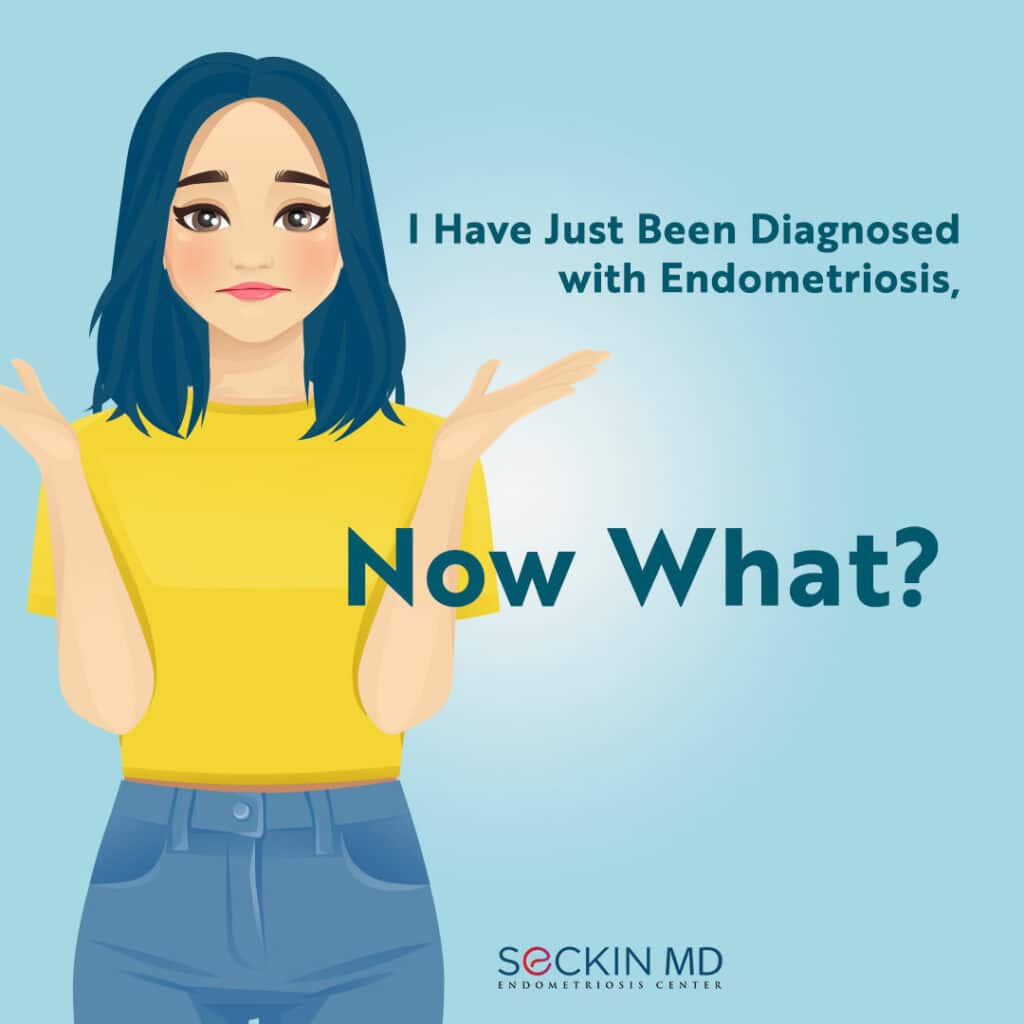I’ve Just Been Diagnosed with Endometriosis, Now What?

A diagnosis of endometriosis can lead to all sorts of confusion, despair, and even feelings of dejection. Though it affects nearly 1 in 10 women of reproductive age, endometriosis is a poorly understood disease. A confirmed endometriosis diagnosis can be hard to fathom. But some patients often feel relief as they now finally know the cause of their pain. Here are a few tips to make better sense of what to do once you have been diagnosed endometriosis.
A diagnosis…finally!
An experienced specialist can diagnose endometriosis based on your symptoms. By taking your medical history, a good doctor can have a pretty good idea about whether or not you have endometriosis.
Your doctor may also use techniques like magnetic resonance imaging (MRI), ultrasonography, and a pelvic exam to reach a diagnosis.
However, a final diagnosis can only be reached by laparoscopic deep excision surgery followed by histological examination of the removed lesions. This means that by the time you receive a definite diagnosis you have also been treated for your disease. However, your symptoms may not disappear completely and your disease may recur. So you should make some adjustments to your life.
Pace your work without stressing out
Endometriosis can place a great strain on your physical and mental health. If you have endometriosis, be sure to pace yourself. For example, consider talking to your organization‘s human resources department to work out a mutually convenient work schedule.
Try staying motivated at all times
Endometriosis can cause emotional upheaval, but it is important to stay motivated. Plan out your schedule for the day, so that you don’t have to rush to do things. This makes it possible to have adequate time for recreational activities and exercise. Also, practicing meditation, yoga, or mindfulness can help you relax and calm your mind.
Eat healthily and sleep well
A good diet can make a big difference. Endometriosis is an inflammatory disease so switching to an anti-inflammatory diet can help. Practicing good sleep hygiene can also ensure you have a good restful night’s sleep and better overall health.
Get support from friends and family
Endometriosis can affect you personally, professionally, and emotionally. Thus, it is important that you have proper support from family and friends who can understand your situation. Having such support also reduces social isolation and leads to better communication while avoiding risks of anxiety and depression.
It is also important that you maintain effective communication with your partner at all times.
Join local support groups
Support groups are vital and enable you to connect with other patients, clinicians, and researchers. Learning from each other’s experiences offers a broader perspective of the disease. It also helps you to manage your own condition better.
Support groups such as the Endometriosis Foundation of America (EndoFound) are great ways to connect with the endometriosis community.
How about having a baby?
Infertility is seen in nearly 50% of endometriosis cases and is a major reason for anxiety among patients. With the right approach, the majority of endometriosis cases can be treated in a way to improve fertility. By removing all identified lesions and using non-destructive surgical techniques, the surgeons at Seckin Endometriosis Center are able to meticulously reconstruct the ovaries and uterus for better fertility prospects.
Learn about the disease and raise awareness
There are many misconceptions and myths about endometriosis. So, make sure to have some clarity on those as a starting point.
Dr. Seckin’s books and blogs about endometriosis are a great information source of up-to-date information pertaining to all aspects of the disease.
You may also want to engage in activities to raise awareness about the disease so other women also receive a diagnosis on time and don’t have to live in pain needlessly.
Have you been diagnosed with endometriosis? How did the diagnosis affect you? Please share your story by leaving a comment on our post on Facebook or Instagram.
Get a Second Opinion
Our endometriosis specialists are dedicated to providing patients with expert care. Whether you have been diagnosed or are looking to find a doctor, they are ready to help.Our office is located on 872 Fifth Avenue New York, NY 10065.
You may call us at (646) 960-3080 or have your case reviewed by clicking here.